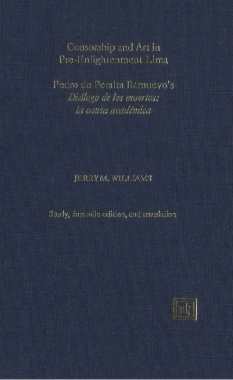

This is the first translation and critical edition of Peralta's work. The Diálogo, an allegorical satire, has challenged scholars for centuries; it represents a critique of pre-Enlightenment academies and a defense of artistic freedom. The study focuses on issues of colonial discourse and status, literary convention and censorship, social tradition and crisis.